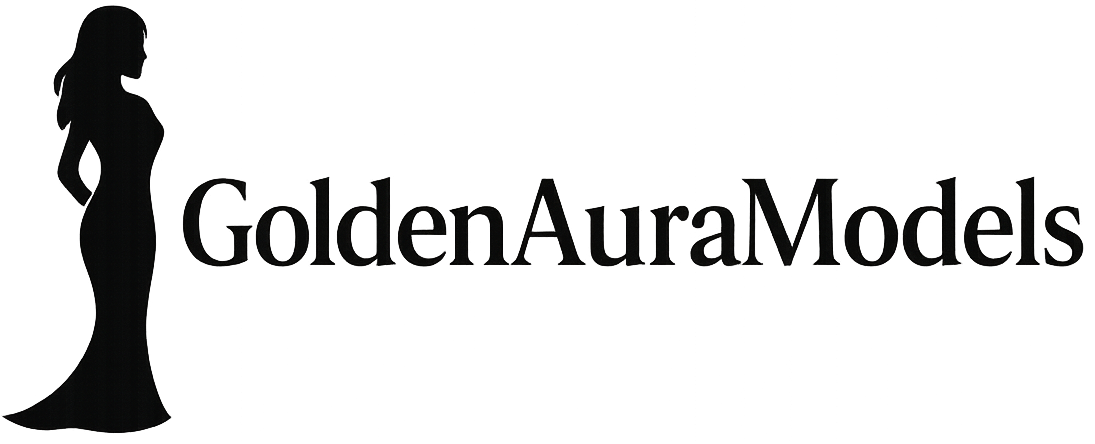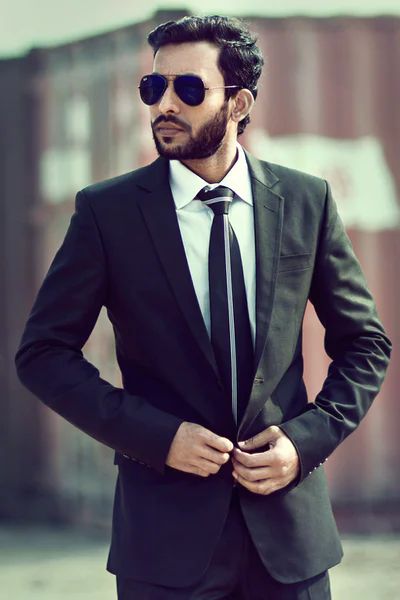Dubai and the wider UAE have established themselves as dynamic hubs for fashion and modeling, attracting talent from around the world. While the region embraces modernity and cosmopolitan influences, it also maintains strong cultural traditions and values. For international models working in this unique environment, understanding and respecting these cultural nuances is essential for both professional success and personal comfort.
This guide aims to help models navigate the cultural landscape of the UAE with confidence and sensitivity, allowing them to build successful careers while fostering positive cross-cultural relationships.
Understanding the UAE's Cultural Context
The United Arab Emirates is a federation of seven emirates, with Dubai and Abu Dhabi being the most prominent in the fashion and modeling industries. While distinctly modern and international in outlook, the UAE is an Islamic country where local customs and traditions are highly valued.
Several key factors shape the cultural environment:
- Religious Context: Islam is the official religion and influences many aspects of daily life and social norms.
- Cultural Diversity: Emiratis make up approximately 10-15% of the population, with the majority being expatriates from around the world.
- Modernization with Tradition: The UAE balances rapid modernization with preservation of cultural heritage.
- Distinctive Social Codes: Certain behaviors that might be casual in Western countries may be considered inappropriate in the UAE.
"Understanding cultural context isn't just about avoiding mistakes—it's about developing genuine appreciation for the unique environment that makes Dubai such a special place to work." - Aisha Al Maktoum, Talent Director
Dress Codes and Public Appearance
While the UAE is more liberal than some other countries in the region, appropriate dress is still important, particularly in public spaces.
General Guidelines for Public Areas
- For Women: Shoulders and knees should generally be covered in public spaces outside of beach or pool areas. Overly tight or revealing clothing may attract unwanted attention.
- For Men: Shorts should typically reach the knee, and going shirtless is only appropriate at beaches or pools.
- Religious Sites: When visiting mosques or other religious places, women should cover their hair, arms, and legs, while men should wear long pants and sleeved shirts.
- Commercial Areas: Shopping malls and commercial districts often have posted dress codes that should be respected.

Example of appropriate casual attire for models in Dubai's public spaces
Professional Contexts
In professional modeling contexts, standards may vary based on the specific assignment:
- Private Studio Shoots: Usually have more flexibility, though the final images should still be appropriate for local distribution if applicable.
- Public Fashion Shows: Often more conservative than their Western counterparts, especially for events targeting local audiences.
- Commercial Campaigns: Campaigns intended for UAE distribution will typically adhere to local standards of modesty.
- International Campaigns: Work shot in the UAE but intended for international markets may follow different guidelines, though shooting locations may still require adherence to local norms.
It's important to clarify expectations with your agency or client before any assignment, especially regarding clothing, poses, and the intended audience for the final content.
Social Etiquette and Interactions
Professional relationships in the UAE often incorporate local customs and etiquette that may differ from Western norms.
Greetings and Introductions
- Handshakes: Wait for the UAE national to extend their hand first, especially between men and women. Some conservative individuals may prefer not to shake hands with members of the opposite gender.
- Eye Contact: Direct but not prolonged eye contact shows attentiveness. Avoiding eye contact entirely can appear disrespectful.
- Titles: Using appropriate titles (Mr., Ms., Sheikh/Sheikha for Emiratis of status) shows respect.
- Business Cards: If exchanging business cards, offer and receive them with your right hand or both hands as a sign of respect.
Physical Space and Interaction
- Personal Space: Maintain appropriate physical distance, especially between men and women.
- Public Displays of Affection: These should be avoided in public spaces, including holding hands, kissing, or embracing between couples.
- Sitting Posture: Avoid showing the soles of your feet toward others, which can be considered disrespectful.
- Photography: Always ask permission before photographing locals, especially women.
Communication Style
- Indirect Communication: UAE business culture often favors indirect communication. Direct criticism or disagreement may be considered impolite.
- Patience: Decision-making may take longer than in Western contexts, with relationship-building valued over transactional efficiency.
- Humor: Until you understand local sensibilities well, use humor cautiously in professional settings.
- Volume: Speaking loudly in public may be perceived as rude or inappropriate.
Legal Considerations for Models
Understanding the legal framework is crucial for models working in the UAE:
Work Permits and Visas
- Proper Documentation: Always ensure you have the correct work permits and visas. Working on a tourist visa is illegal and can result in serious consequences.
- Agency Representation: Reputable agencies will assist with proper documentation. Be wary of any agency that suggests working without proper permits.
- Residency Requirements: For longer contracts, understand the requirements for residency permits and any associated restrictions.
Content Restrictions
- Social Media: Be mindful of what you post on social media while in the UAE. Content that might be considered disrespectful to local customs, religion, or the government can have legal consequences.
- Photography: Certain government buildings, military installations, and some religious sites should not be photographed.
- Controversial Topics: Publicly discussing or posting content related to politics, religion, or sexuality in ways that could be considered offensive may violate local laws.
Behavioral Laws
- Alcohol Consumption: Alcohol is available in licensed venues but public intoxication is illegal and strictly enforced.
- Drug Laws: The UAE has zero tolerance for drug possession or use, with severe penalties.
- Public Behavior: Actions considered normal in some countries (public displays of affection, profane language, rude gestures) can result in legal consequences in the UAE.
Religious Considerations and Ramadan
Respect for Islamic practices is important, particularly during religious periods:
Ramadan Etiquette
During the holy month of Ramadan, models should be aware of additional considerations:
- Eating and Drinking: Avoid eating, drinking, or smoking in public during daylight hours, even if you're not Muslim.
- Work Schedules: Business hours often change during Ramadan, with many shoots scheduled for early morning or evening.
- Dress: More conservative dress is especially appreciated during this time.
- Music and Entertainment: Public events may be more subdued during Ramadan.
Prayer Times
- Schedule Awareness: Be aware that Muslim colleagues may observe five daily prayer times, which may briefly interrupt work schedules.
- Quiet Respect: If work continues during prayer times, maintain a respectful volume.
Building Cultural Intelligence
Beyond specific rules and guidelines, developing genuine cultural intelligence will enhance your experience and opportunities in the UAE:
Learning Opportunities
- Basic Arabic: Learning a few Arabic greetings and phrases shows respect and willingness to engage with the culture.
- Cultural Experiences: Take time to visit cultural sites, museums, and traditional areas of the city.
- Local Connections: Building genuine friendships with locals and long-term expatriates can provide valuable cultural insights.
Adaptability
- Flexibility: Being adaptable in different cultural contexts shows professionalism and maturity.
- Observation: Pay attention to how locals and experienced expatriates conduct themselves in various situations.
- Context Sensitivity: Recognize that norms may vary between different emirates, venues, and professional contexts.
"The most successful international models in Dubai are those who approach cultural differences with curiosity rather than judgment. This attitude opens doors to unique opportunities that wouldn't be available elsewhere." - Sarah Johnson, CEO
Common Misconceptions
Many international models arrive with misconceptions about working in Dubai:
Myth: "Dubai is Just Like Working in Europe or America"
Reality: While Dubai is cosmopolitan and international, it operates within a distinct cultural and legal framework that must be respected.
Myth: "I'll Have to Completely Change My Lifestyle"
Reality: Most expatriates find they can maintain their personal lifestyle with reasonable adaptations in public spaces and professional contexts.
Myth: "Cultural Rules Don't Apply to Models and Celebrities"
Reality: Public figures are often held to higher standards and their actions more closely scrutinized, making cultural sensitivity even more important.
Case Studies: Navigating Cultural Complexities
Case Study 1: Fashion Show Adaptation
A major international designer wanted to bring their runway show to Dubai but faced challenges with their original collection being too revealing for local standards. By collaborating with our agency and local cultural consultants, they successfully adapted their collection to respect local sensibilities while maintaining their brand aesthetic. The resulting show received positive coverage in both local and international press.
Case Study 2: Social Media Awareness
An international model working on a campaign in Dubai posted behind-the-scenes content that inadvertently included inappropriate elements (alcohol consumption, revealing outfits in public spaces). Our agency's quick intervention helped the model understand the potential implications, remove the content, and replace it with culturally appropriate alternatives. This proactive approach prevented potential legal issues and preserved the client relationship.
Resources for Cultural Navigation
At Golden Aura Models, we provide comprehensive cultural orientation for our international models, but we also recommend these additional resources:
- Official UAE government guidelines for visitors and residents
- Cultural awareness workshops offered by various organizations in Dubai
- Connecting with established international models who have successfully navigated the local industry
- Maintaining open communication with your agency about any cultural questions that arise
Conclusion: Cultural Sensitivity as a Professional Asset
Understanding and respecting cultural norms in the UAE isn't just about avoiding problems—it's about unlocking opportunities. Models who demonstrate cultural intelligence often find themselves preferred for prestigious campaigns targeting local markets and invited to exclusive events that require cultural sensitivity.
The UAE offers unique and rewarding experiences for models who approach its cultural landscape with respect, curiosity, and adaptability. At Golden Aura Models, we're committed to helping our talent navigate these cultural nuances successfully, ensuring both their professional success and personal well-being during their time in the region.
If you have specific questions about cultural considerations for upcoming assignments in the UAE, please contact our team for personalized guidance.




